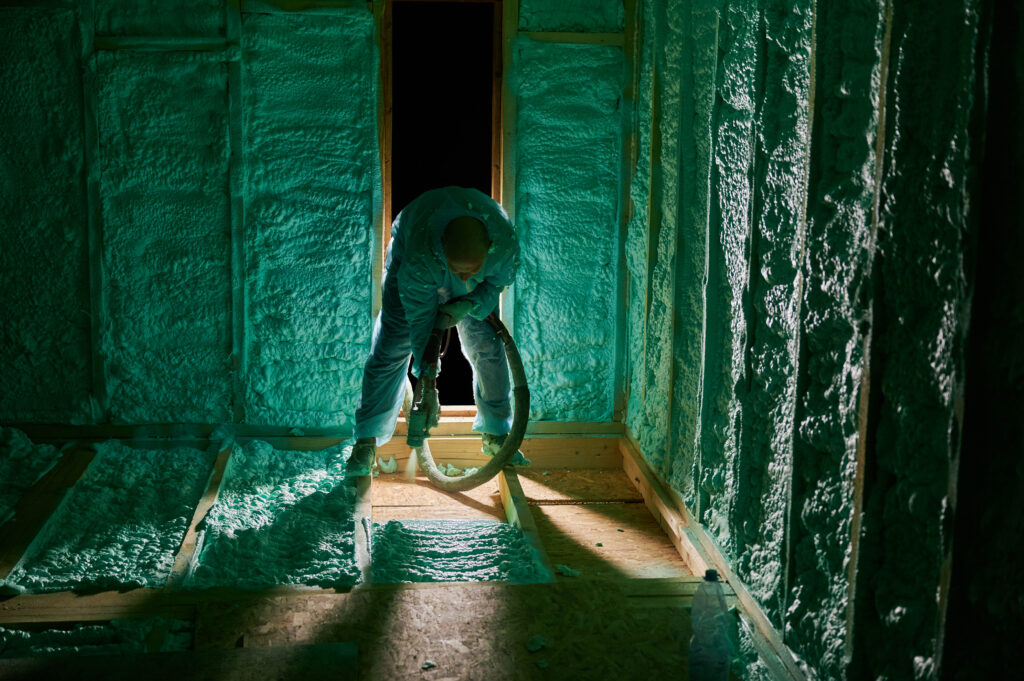When it comes to insulating your home, spray foam insulation stands out as a modern, efficient solution. Unlike traditional insulation methods, spray foam offers unparalleled air sealing and energy efficiency. This makes it an ideal choice for homes looking to enhance indoor comfort while reducing energy costs. It adapts to every nook and cranny, ensuring thorough insulation that traditional materials simply cannot match. Additionally, the adaptability of spray foam makes it suitable for various architectural designs, from classic homes to modern structures.
In the realm of residential spray foam insulation, two types are predominant: closed cell spray foam and open cell foam. Closed cell foam, known for its density and moisture-resisting properties, offers an exceptional air barrier and vapor barrier, making it ideal for areas prone to dampness. On the other hand, open cell foam, with its lighter and more pliable nature, provides excellent insulation and is effective in sound reduction, a desirable feature in residential settings. The choice between the two depends on the specific needs of different areas in your home, balancing between moisture resistance and sound insulation. Understanding these differences ensures homeowners make an informed decision suited to their specific needs.

One of the foremost benefits of spray foam insulation in homes is its ability to create a seamless air seal. By preventing air infiltration, spray foam significantly reduces the workload on heating and cooling systems, leading to substantial energy savings. This sealing effect contributes to a stable indoor environment, free from drafts and temperature fluctuations.
Spray foam’s role as a vapor barrier is crucial in protecting your home from moisture-related issues. By blocking moisture entry, it helps prevent the growth of mold and mildew, ensuring a healthier living space. This property is particularly beneficial in humid climates or in parts of the home with high moisture exposure.
The process of installing spray foam requires precision and expertise. Professional installation guarantees that the foam expands and cures properly, forming an effective insulating layer. Proper installation is key to realizing the full benefits of spray foam, including minimized heat transfer and enhanced energy efficiency.
Choosing spray foam for your home is not just a decision for comfort but also an environmentally conscious one. By reducing energy costs and heat transfer, spray foam contributes to lower carbon emissions, aligning with eco-friendly building practices.
Numerous homes insulated with spray foam have reported significant improvements in comfort and energy usage. These case studies highlight the transformative impact of spray foam insulation, providing real-world evidence of its benefits.
Residential spray foam insulation represents a smart investment for homeowners. Its ability to act as an effective air barrier, coupled with its energy-saving properties, makes it an ideal choice for modern homes. By choosing spray foam, you’re not only ensuring a comfortable living space but also contributing to a more sustainable future. Contact us today and follow us on social media to stay updated!





